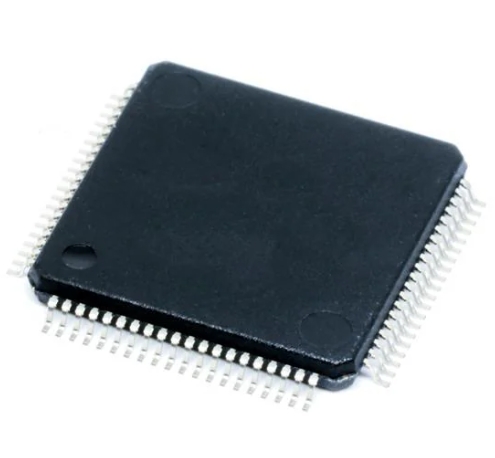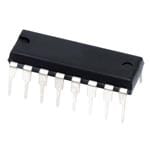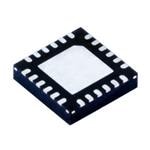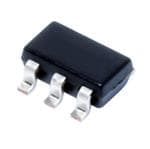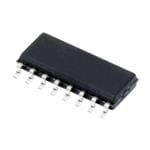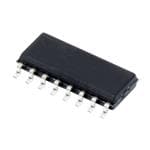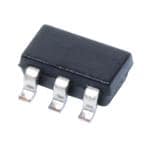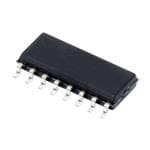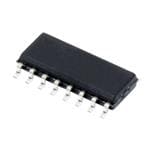The TMS320F28034PNT is a high-performance, low-power microcontroller from Texas Instruments, part of the C2000™ Delfino™ series. It is particularly suited for embedded control applications such as digital power, motor control, and electric vehicles. Below are the main features and a description of the TMS320F28034PNT:
Main Features
- Core:
- 32-bit TMS320C28x DSP CPU
- Operating frequency up to 60 MHz
- 60 MIPS (Million Instructions Per Second)
- Memory:
- 64 KB Flash memory
- 12 KB SRAM
- Peripherals:
- 2 enhanced Pulse Width Modulation modules (ePWM)
- 2 enhanced Capture modules (eCAP)
- 1 enhanced Quadrature Encoder Pulse module (eQEP)
- 1 12-bit ADC supporting up to 16 input channels
- 2 Serial Communication Interfaces (SCI)
- 1 Serial Peripheral Interface (SPI)
- 1 I2C interface
- 1 CAN interface
- Control Peripherals:
- Enhanced PWM modules for advanced motor control and power conversion applications
- Support for high-resolution PWM, enabling more precise control
- Communication Interfaces:
- Supports standard communication protocols such as SCI, SPI, I2C, and CAN for easy integration with other devices
- Clock and Power Management:
- Internal oscillator and programmable PLL
- Low-power modes with multiple power management features
- Package and Pins:
- Package type: 80-pin LQFP (PNT)
- Operating temperature range: -40°C to 105°C
Application Fields
- Digital Power Control: Suitable for AC-DC, DC-DC converters, inverters, etc.
- Motor Control: Suitable for DC motors, brushless DC motors, AC induction motors, etc.
- Electric Vehicles: Used in battery management systems, onboard chargers, etc.
- Industrial Automation: Such as programmable logic controllers (PLCs), industrial robots, etc.
- Smart Home and IoT Devices: Used in smart appliances, home automation controls, etc.
Feature Description
The TMS320F28034PNT is a highly integrated microcontroller that combines a powerful DSP core with a wide range of peripherals, capable of meeting the demands of various embedded control applications. Its high performance and low power consumption make it well-suited for applications requiring real-time processing and precise control. The multiple communication interfaces facilitate easy data exchange and control with other devices, making it ideal for complex embedded systems.

 Lead free / RoHS Compliant
Lead free / RoHS Compliant


